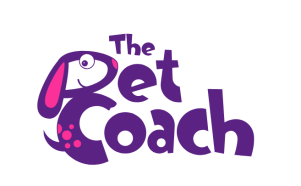The Ultimate Guide to Dog Nutrition: Everything You Need to Know
Are you ready to give your dog the best nutrition possible? Well, here's some food for thought: did you know that a balanced and nutritious diet can help your pup live a longer, healthier life?
In this ultimate guide to dog nutrition, we've got all the information you need to make informed decisions about what to feed your pup. From essential nutrients to the healthiest food options, we've got you covered.
So, let's dig in and give your dog the diet they deserve!

Nutrient Requirements for Dogs
To ensure your dog's optimum health, it's essential to meet their nutrient requirements through a balanced diet.
Dogs require various nutrients, including protein, fat, omega fatty acids (such as EPA and DHA), glucosamine, chondroitin, antioxidants, vitamins, and minerals.
Protein is crucial for muscle development, skin and coat health, and overall bodily functions. Animal protein sources are often preferred due to their higher concentrations of essential amino acids.
Fats provide energy and essential fatty acids that support inflammation control and promote a healthy coat and skin. Omega fatty acids, like EPA and DHA, are particularly beneficial for dogs.
Glucosamine and chondroitin aid in joint health, while antioxidants, vitamins, and minerals support overall well-being.
Providing a diet that includes these essential nutrients will help ensure your dog's health and vitality.
Importance of Water for Dogs
Water is an essential nutrient for your dog, accounting for 60 to 70 percent of their body weight, and it plays a crucial role in their overall health and well-being.
While dog food, whether it's kibble, canned food, raw food, freeze-dried food, or dehydrated food, provides some moisture, it may not be sufficient to meet their hydration needs. That's why it's important to ensure that your dog has access to clean and fresh water at all times.
Insufficient water intake can lead to serious consequences, with a decrease of just 10 percent resulting in illnesses and 15 percent or more causing fatality. Adequate water intake is also important for weight management, as it can help prevent obesity in dogs.

The Role of Proteins in Dog Nutrition
Proteins play a crucial role in your dog's nutrition. They are essential for your dog's overall health and well-being as they serve as the building blocks for cells, tissues, and organs. Moreover, proteins are involved in important functions such as muscle development, skin and coat health, and blood formation. Here are five key points to consider:
- Digestion: Proteins are broken down into amino acids during digestion, which are then used by the body for various functions.
- Carbohydrate balance: While carbohydrates also provide energy, proteins are necessary to maintain the proper balance and utilization of carbohydrates in your dog's diet.
- Gastrointestinal health: Adequate protein intake helps support a healthy digestive system and nutrient absorption.
- Allergies and sensitivities: Some dogs may have allergies or sensitivities to certain proteins, so it's important to choose protein sources that are suitable for your dog's specific needs.
- Life stages and ideal weight: The amount and type of proteins needed may vary depending on your dog's life stage and weight goals. Consult with a veterinary nutritionist to determine the right protein levels for your dog.
Including high-quality protein sources, such as lean meats and organ meats, in your dog's diet can help ensure they receive the necessary nutrients for optimal health. Consider consulting with a professional to determine if protein supplements are necessary for your dog's specific dietary needs.
Understanding Fats in a Dog's Diet
Include a variety of healthy fats in your dog's diet to support their overall health and well-being. Fats are a concentrated source of energy in pet food, containing 2.25 times more calories than carbohydrates or proteins. They consist of glycerol, triglycerides, and fatty acids, including essential fatty acids like omega-6 and omega-3. These essential fatty acids play important roles in inflammation control and maintaining a healthy coat and skin.
However, it's important to ensure that your dog receives the right amount of fats in their diet, as deficiencies can lead to growth issues and skin problems, while excessive consumption can cause obesity. Good sources of fat for dogs include vegetable oils, pork fat, chicken, canola oil, and fish oil.
When choosing dog food, check the labels for the fat content and consider the quality and variety of fats used by different brands. Remember to practice portion control and follow a feeding schedule to prevent overfeeding. Additionally, be aware that certain fats can be toxic to dogs, such as those found in avocados, so it's important to avoid feeding these foods to your dog.
Taking these factors into account will help ensure that your dog receives the right balance of fats in their diet for optimal health and well-being.
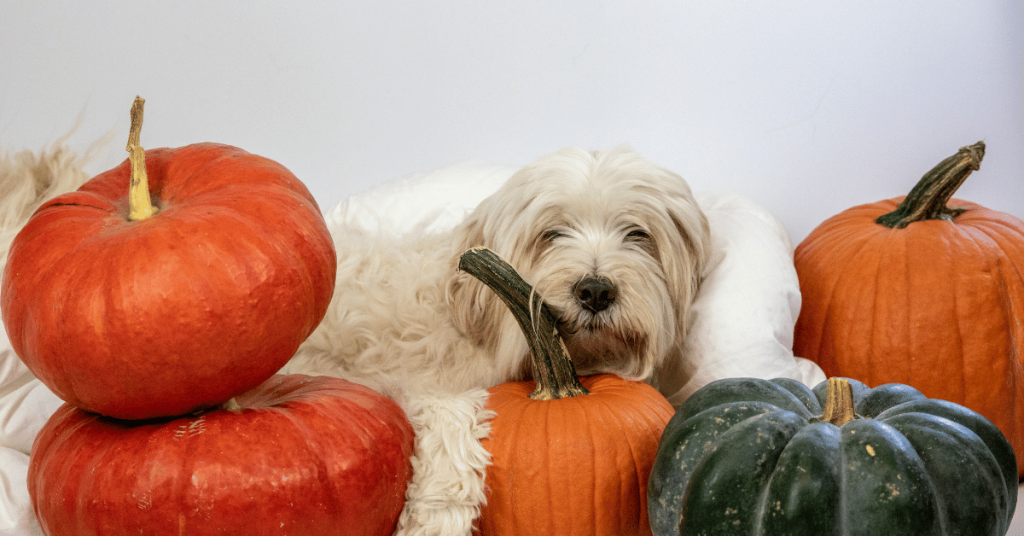
Carbohydrates and Fiber in Dog Nutrition
To meet your dog's energy needs and promote digestive health, it's important to include an appropriate amount of carbohydrates and fiber in their diet. Here are five key things you should know about carbohydrates and fiber in canine nutrition:
- Grains: Sources like corn, rice, barley, wheat, potatoes, and oats provide complex carbohydrates that supply energy for your dog.
- Fruits and Vegetables: Incorporating fruits and vegetables such as sweet potatoes, green beans, carrots, and pumpkin can provide additional carbohydrates and fiber to your dog's diet.
- Fiber: Dietary fiber, including crude fiber, aids in digestion and promotes bowel regularity in dogs.
- Carbohydrates as a Source of Energy: Carbohydrates provide glucose, which serves as the main source of energy for dogs. They also contribute to dietary fiber, important for digestive health.
- Dry Food: Dry dog food often contains grains like oat, wheat, barley, rice, and corn, which can be good sources of starch and provide carbohydrates. Remember to read the ingredient list to ensure the quality and type of the carbohydrates included.
Essential Vitamins for Dogs
To ensure your dog's optimal health and well-being, it's crucial to understand the importance of including essential vitamins in their diet. Vitamins play a vital role in maintaining your dog's overall health, supporting their immune system, promoting healthy growth and development, and preventing deficiencies and diseases.
Different vitamins have specific functions and benefits for your dog. Vitamin A, for example, is important for vision and immune function, while vitamin D helps with calcium absorption and bone health. Vitamin E is an antioxidant that protects against cell damage, and vitamin C supports collagen production and boosts the immune system.
It's important to note that the specific vitamin requirements may vary depending on factors such as the dog's age (puppy, adult, senior), size (large breed, small breed), and specific health needs.
While commercial dog foods usually contain adequate amounts of vitamins, if you prefer homemade recipes, it's essential to consult with a veterinary nutritionist to ensure your dog's nutritional needs are met.
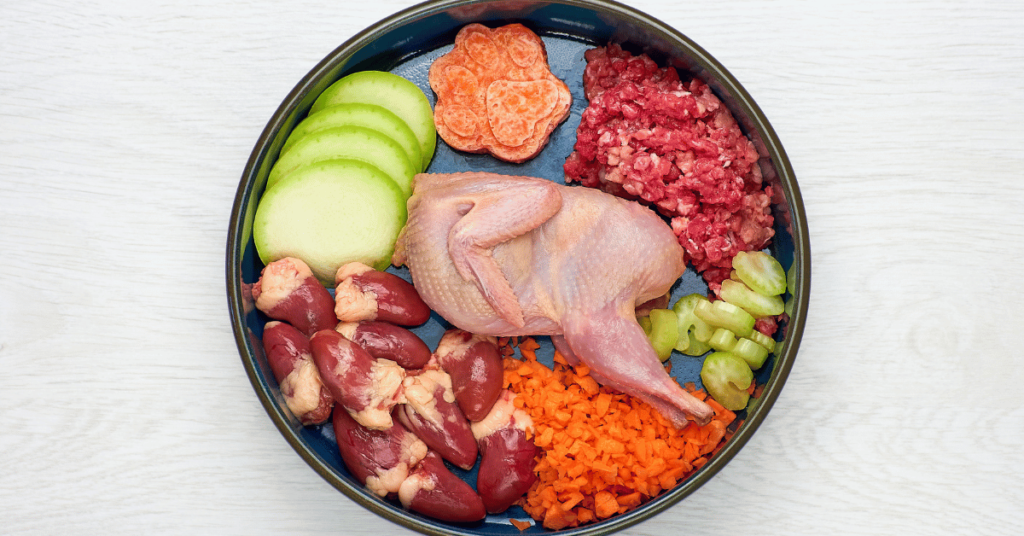
Nutrients in Dog Food
When considering the nutrients in your dog's food, it's important to understand the essential vitamins that contribute to their overall health and well-being. Here are five key nutrients to keep in mind:
- Taurine: Taurine is an amino acid that plays a crucial role in maintaining healthy heart function and vision in dogs. It's found in animal-based proteins and is important for dogs that don't consume a lot of meat.
- Folic Acid: Folic acid is essential for cell growth and development. It helps in the production of red blood cells and DNA synthesis. It can be found in foods like liver, spinach, and broccoli.
- Niacin: Niacin, also known as vitamin B3, is essential for energy production and metabolism. It helps in maintaining healthy skin and coat. Good sources of niacin include meat, fish, and poultry.
- Biotin: Biotin, also known as vitamin B7, is important for maintaining healthy skin, coat, and nails. It also aids in digestion and energy production. Foods like liver, eggs, and nuts are rich in biotin.
- Blood Sugar Regulation: Nutrients like complex carbohydrates and fiber help regulate blood sugar levels in dogs. Including these nutrients in your dog's diet can promote stable energy levels and prevent blood sugar spikes.
AAFCO Guidelines for Dog Food
To ensure that your dog's diet meets their nutritional requirements, it's important to understand and follow the AAFCO guidelines for dog food.
The AAFCO, or the Association of American Feed Control Officials, is a non-profit organization that defines the ingredients used in animal feed and pet food. They ensure that pet food products have the necessary nutrients through appropriate analyses.
By following these guidelines, you can provide your dog with a diet that meets their specific needs. This includes avoiding potential choking hazards, such as bones or large chunks of food, which can lead to serious health issues like bloat.
Additionally, a balanced diet that meets AAFCO guidelines can promote coat health, reduce shedding, prevent hot spots and yeast infections, and support the overall health of vital organs like the liver, kidney, and heart.
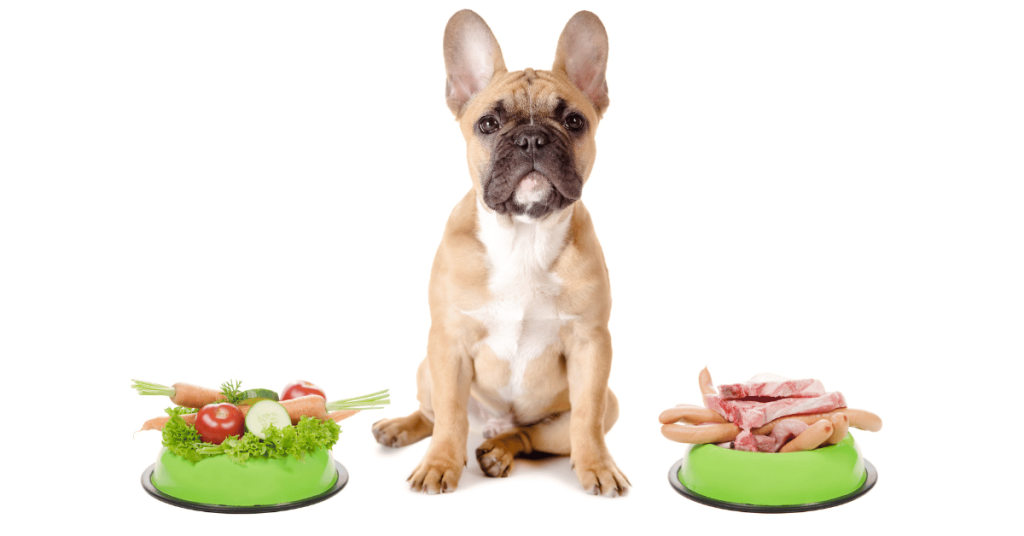
Protein in Dog Food
Protein is an essential nutrient in your dog's diet, providing the building blocks for important bodily functions and contributing to overall health and well-being.
As well as the protein in their dog food, here are five additional protein-rich food options to consider feeding:
- Tripe: This nutrient-rich organ meat isn't only packed with protein but also contains essential fatty acids and vitamins.
- Eyes and tongue: While it may sound unusual, these organ meats are highly nutritious and provide a good source of protein for your dog.
- Eggs: A versatile and easily digestible protein source, eggs are a great addition to your dog's diet. They're also rich in vitamins and minerals.
- Salmon and sardines: These fatty fish aren't only delicious but also high in protein and omega-3 fatty acids, which support a healthy coat and skin.
- Yogurt: A protein-rich treat for your dog, yogurt can also provide beneficial probiotics for gut health.
When choosing protein sources, remember that wet food and homemade meals can be great options for increasing protein intake, but also that a dog should still have a complete and balanced diet.
You can also use Kongs or other interactive toys to incorporate protein-rich foods for your dog to eat. this is especially useful for fussy dogs or ones who are off their food, as using food enrichment can be a great tactic to get them eating more.
Fat in Dog Food
Fat is another important nutrient in your dog's diet, providing essential fatty acids and concentrated energy for their overall health and well-being. Essential fatty acids, such as omega-6 and omega-3, play a crucial role in inflammation control and maintaining a healthy coat and skin. However, it's important to note that excessive fat consumption can lead to obesity.
Good sources of fat for dogs include vegetable oils, pork fat, chicken, canola oil, and fish oil. When choosing dog treats, be mindful of choking hazards and opt for options like apples or bananas. Training treats can be used to reward good behavior, but remember to use them in moderation.
Puzzle toys can also be a fun and interactive way to provide mental stimulation and slow down a dog's eating. If you choose to feed your dog frozen or refrigerated food, make sure to follow proper handling and storage guidelines to ensure food safety.

Carbohydrates and Vitamins in Dog Food
When choosing the right food for your dog, it's important to consider the role of carbohydrates and vitamins in your dog's diet. Carbohydrates provide energy and glucose for your dog's body, while also generating heat and serving as the base for other nutrients. Fiber from carbohydrates is crucial for maintaining normal gastrointestinal function and overall health.
Vitamins, such as vitamin A, D, E, and K, as well as water-soluble vitamins like thiamin and biotin, play various roles in your dog's body and deficiencies can lead to decreased normal functioning.
Providing a balanced diet that includes carbohydrates and vitamins is essential for your dog's overall health and well-being, whether they're a puppy or a senior dog.
- Carbohydrates supply energy and glucose for your dog's body.
- Fiber from carbohydrates promotes normal gastrointestinal function.
- Vitamins perform various important functions in your dog's body.
- Deficiencies in vitamins can lead to decreased normal functioning.
- A balanced diet that includes carbohydrates and vitamins is crucial for your dog's health.
The Importance of Nutrition for Canine Health
Ensuring optimal nutrition for your dog is crucial for their overall health and well-being. A balanced diet provides necessary vitamins, minerals, and nutrients that are essential for their growth, energy, and overall well-being. Poor nutrition can lead to health issues such as obesity, diabetes, and heart disease. To highlight the importance of nutrition, let's take a look at what might happen if your dog receives inadequate nutrition:
| Consequence | Effect | Severity |
| Obesity | Excess weight gain | Moderate to severe |
| Malnutrition | Nutrient deficiencies | Severe |
| Digestive problems | Diarrhea, vomiting | Mild to moderate |
As you can see, overfeeding, not getting the appropriate nutrition or having digestive upsets can have serious consequences for your pup. Therefore, it is essential to provide them with a balanced and nutritious diet to ensure their optimal health and well-being.

Types of Dog Food
To continue learning about canine nutrition, let's look at the different types of dog food available for your furry companion. Here are five types of dog food that all offer proper nutrition:
- Dry food: This type of food is convenient and cost-effective. Look for dry foods with meat as the first ingredient and avoid those with a high amount of fillers like corn and soy.
- Wet food: Wet food is more palatable and easier to digest. It can be a good option for older dogs or those with dental issues, and is also handy when your pup is teething as it's softer on sore gums
- Raw food: Raw food diets consist of uncooked meat, bones, fruits, and vegetables. They aim to mimic a dog's natural diet in the wild.
- Freeze-dried food: This type of food is made by removing moisture from fresh ingredients while preserving their nutrients. It offers convenience and a longer shelf life, and can be a great option for travelling, camping or hiking with your dog.
- Homemade food: Some dog parents prefer to prepare homemade meals for their dogs. It allows for complete control over ingredients and can be tailored to a dog's specific needs. There are also many commercial cooked diets available on the market these days, so you get the quality of a homecooked diet, but the convenience of someone else making it for your dog!
Which type you choose for your dog will be personal preference, the main thing to remember is that it MUST be nutritionally complete, so check food labels carefully.
It's worth talking to a canine dietician or veterinarian to determine the best type of food for your dog's individual needs.
The 25 Rule for Dog Food
The 25 Rule for Dog Food refers to the recommended minimum percentage of protein and fat in your dog's diet. According to experts, a good quality dog food should have at least 25% protein and 15% fat.
Protein is essential for muscle development, skin health, and overall bodily functions, while fat provides energy and supports a healthy coat and skin.
The 95 Rule for Dog Food
By following the 25 Rule for Dog Food and ensuring your dog receives the necessary protein and fat, you can now explore the next important guideline for feeding your dog: the 95 Rule.
The 95 Rule emphasizes that 95% of a dog's diet should consist of whole, unprocessed foods. This means incorporating fresh meats, fruits, vegetables, and grains into their meals.
Here are some reasons why the 95 Rule is important for your dog's nutrition:
– Improved Digestion: Whole foods are easier for dogs to digest, leading to better nutrient absorption and fewer digestive issues.
– Enhanced Nutrient Profile: Fresh, unprocessed foods provide a wider range of essential nutrients, vitamins, and minerals for your dog's overall health.
– Increased Energy Levels: Whole foods provide a natural source of energy, helping your dog stay active and vibrant.
– Better Oral Health: Chewing on whole foods helps clean your dog's teeth and gums, promoting good oral hygiene.
– Stronger Immune System: The rich nutrient content in whole foods supports a robust immune system, helping your dog fight off illnesses and infections.

Determining Your Dog's Nutrient Needs
Dogs have different nutritional needs, depending on their life stage as well as breed, with large breed dogs needing differing protein amounts as puppies to ensure healthy and slow growth vs small breed dogs maturing faster so switching to an adult food earlier. To determine your dog's nutrient needs, you should consult with a canine dietician or veterinarian. These professionals have the expertise to assess your dog's individual requirements based on factors such as age, breed, size, activity level, and any specific health concerns or food allergies. They can help you create a customized diet plan that is formulated to meet your dog's nutritional needs.
In order to give you an idea of the various nutrient requirements for dogs, here is a table outlining the essential classes of nutrients and their functions:
| Nutrient | Function | Sources |
| Water | Regulates body temperature, aids in digestion and elimination | Fresh and clean water and moisture in other foods |
| Proteins | Building blocks for cells, tissues, and organs | Animal or plant based protein sources such as meat, fish and soy |
| Fats | Concentrated source of energy, essential for coat and skin health | Vegetable oils, meat, and fish |
| Carbohydrates | Provide energy and fiber for digestion | Grains, vegetables, and fruits |
| Vitamins | Essential for various bodily functions | Fruits, vegetables, and supplements |
| Minerals | Important for bone health, enzyme function, and more | Meat, fruits, vegetables, and supplements |
Benefits of Eggs for Dogs
Eggs provide numerous benefits for your dog's health and nutrition. Here are five reasons why eggs are worth including in your dog's diet:
- Protein Powerhouse: Eggs are a great source of high-quality protein, containing all the essential amino acids that dogs need for muscle development and overall health.
- Essential Fatty Acids: Eggs are rich in omega-3 fatty acids, which help promote a healthy coat and skin, reducing itching and inflammation.
- Vitamins and Minerals: Eggs are a natural source of vitamins A, D, and E, as well as minerals like iron and selenium, which contribute to your dog's overall well-being.
- Digestive Health: The presence of biotin in eggs supports healthy digestion and nutrient absorption in dogs.
- Increased Energy: The high protein and fat content in eggs provide a quick and sustainable energy boost for active dogs.
Including eggs in your dog's diet can be a nutritious and tasty addition to their meals, providing them with essential nutrients and promoting overall health.
Benefits of Carrots for Dogs
Carrots can be a great vegetable to include in your dog's diet, and also work well as a healthy recreational dog chew. Slices lengthwise and then frozen they can be given to puppies as a safe chew to help soothe sore gums when teething. Including carrots in your dog's diet can provide a range of benefits for their health and well-being.
Carrots are low in calories and high in fiber, making them a great option for dogs that need to maintain a healthy weight. The fiber in carrots also aids in digestion and can help prevent constipation.
Additionally, carrots are rich in vitamins and minerals, including vitamin A, which is essential for good vision and a healthy immune system. They also contain antioxidants that can help reduce inflammation and promote overall health.
To incorporate carrots into your dog's diet, you can try steaming or boiling them until they're soft, then chopping them into small pieces and mixing them with their regular food. Just make sure to introduce carrots gradually to avoid any digestive upset.
Healthiest Food Options for Dogs
When choosing the healthiest food options for your dog, prioritize high-quality ingredients that meet their nutritional needs. Here are some points to think about:
Protein: Look for dog foods that contain high-quality animal protein sources like chicken, beef, lamb or fish. These proteins provide essential amino acids for muscle development and overall health.
Fats: Opt for dog foods that include healthy fats, such as fish oil or chicken fat. These fats provide essential fatty acids that promote a healthy coat, skin, and joint health.
Carbohydrates: Choose dog foods that include complex carbohydrates like sweet potatoes or brown rice. These carbohydrates provide a slow and steady release of energy for your dog.
Vitamins and Minerals: Ensure that the dog food you choose contains a good balance of vitamins and minerals to support your dog's overall health and immune system.
Avoid Fillers: Avoid dog foods that contain fillers like corn, wheat, or soy. These ingredients offer little nutritional value and can cause digestive issues for some dogs.
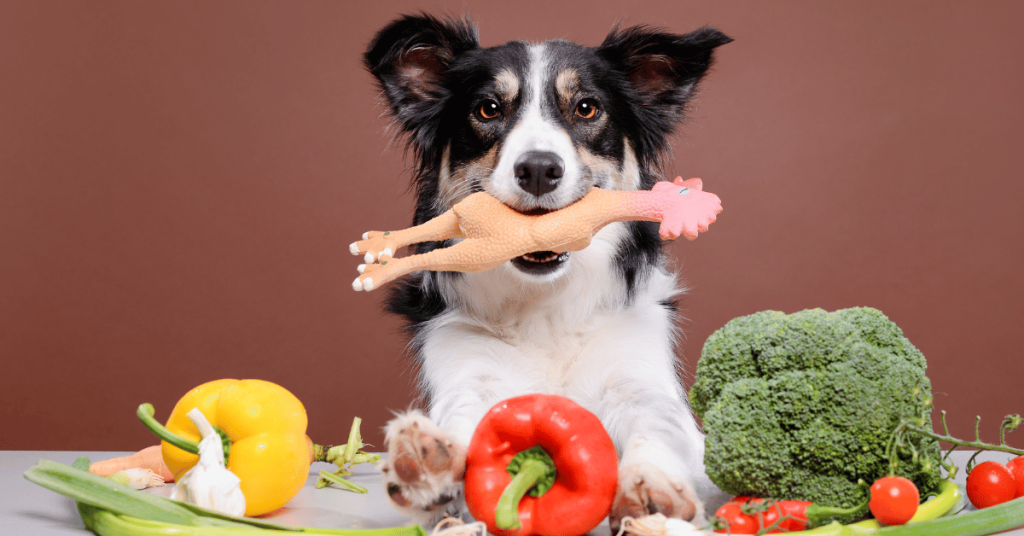
Can Dogs Be Vegetarian or Vegan?
Are you vegetarian or vegan? Wondering if your dog can be? Yes, you can consider feeding your dog a vegetarian or vegan diet, but it's important to consult with a nutritionist to ensure their nutritional needs are met. Dogs have specific nutrient requirements, including essential amino acids, which are primarily found in animal protein sources. there is a huge difference between surviving and thriving on a particular diet, and the wrong dog food may cause a lot of health problems.
It's certainly possible to provide plant-based protein sources, it can be challenging to meet all of a dog's nutritional needs through a vegetarian or vegan diet alone. Additionally, dogs require certain essential fatty acids, such as omega-3 and omega-6, which are typically found in higher concentrations in animal-based fats.
Consulting a professional will help ensure that your dog's vegetarian or vegan diet is properly formulated and balanced to support their health and well-being.
What should I feed my dog?
It is important to feed your dog a balanced and nutritious diet to ensure their health and well-being. The best dog food options will be different for every dog, with a complete and balanced fresh cooked diet, being our personal favorites, but yours may include a combination of high-quality dry food and wet food.
Is dry food better than wet food for my dog?
Both dry food and wet food have their own benefits. Dry food is convenient, and is easy to store. It also does not spoil if left in your dog's bowl and not eaten straight away, and can also be used in automatic feeders. Wet food is more palatable and helps keep your dog hydrated. due to the higher moisture content. You can provide a mix of both to meet your dog's nutritional requirements.
Which is the best dog food brand?
There are many reputable dog food brands available on the market. It is essential to choose a brand that offers high-quality ingredients, meets your dog's specific dietary needs, and has a good reputation for producing safe and nutritious food. Some popular brands include Spot and Tango, Butternut Box, Orijen, Royal Canin and Hill's Science Diet.
How much food should I feed my dog?
The amount of food you should feed your dog depends on factors such as their age, size, breed, activity level, and overall health. It is important to follow the feeding guide provided on the dog food packaging, taking into consideration any specific recommendations from your veterinarian.
Can I feed my dog human food?
Yes! Although, while some human foods are safe for dogs, it is important to be cautious and avoid feeding them foods that are toxic or harmful to their health.
What should I consider when choosing the best dog food?
When choosing the best dog food, consider your dog's age, breed, size, activity level, and any specific dietary needs or health concerns they may have. Look for dog food that contains high-quality ingredients, avoids fillers and by-products, and meets the nutritional standards established by reputable organizations.
Can dogs eat wet dog food only?
Yes, as long as the wet food is a complete food your dog can eat it as their daily food. Read your pet's food label, and be sure it says complete and not complementary, as this would indicate it should be fed ALONGSIDE a complete food. Many wet food toppers designed to go on dry food are complementary and cannot be fed solely, they must be fed with a complete kibble/dry dog food.
Can dogs eat dry dog food only?
Yes, dry dog food has been a popular and primary source of nutrition for dogs for many years, however, it can be beneficial to include wet food as well. Dry food is convenient, and generally offers great value for money, but wet food provides added moisture and can be more palatable for some dogs.
Can dogs eat the same food as cats?
No, dogs and cats have different nutritional needs, so it is not recommended to feed them the same food. Dog food is formulated to meet the specific dietary requirements of dogs, while cat food is tailored to the needs of cats. Feeding a dog a cat's food can lead to nutritional deficiencies, and will commonly also cause your dog an upset stomach and diarrhea. Unlike dogs, cats are obligate carnivores so do not have any need for carbohydrates or fiber in their diet.
How can I ensure my dog's diet is healthy?
To ensure your dog's diet is healthy, feed them a balanced and nutritious dog food that meets their specific nutritional requirements. Consult a canine dietician or veterinarian for guidance on the best food choices for your dog's breed, age, and health condition.
Want to learn more about canine nutirtion? Read our articles on how much water should I give my puppy, and what are safe fruit and vegetables for dogs.
